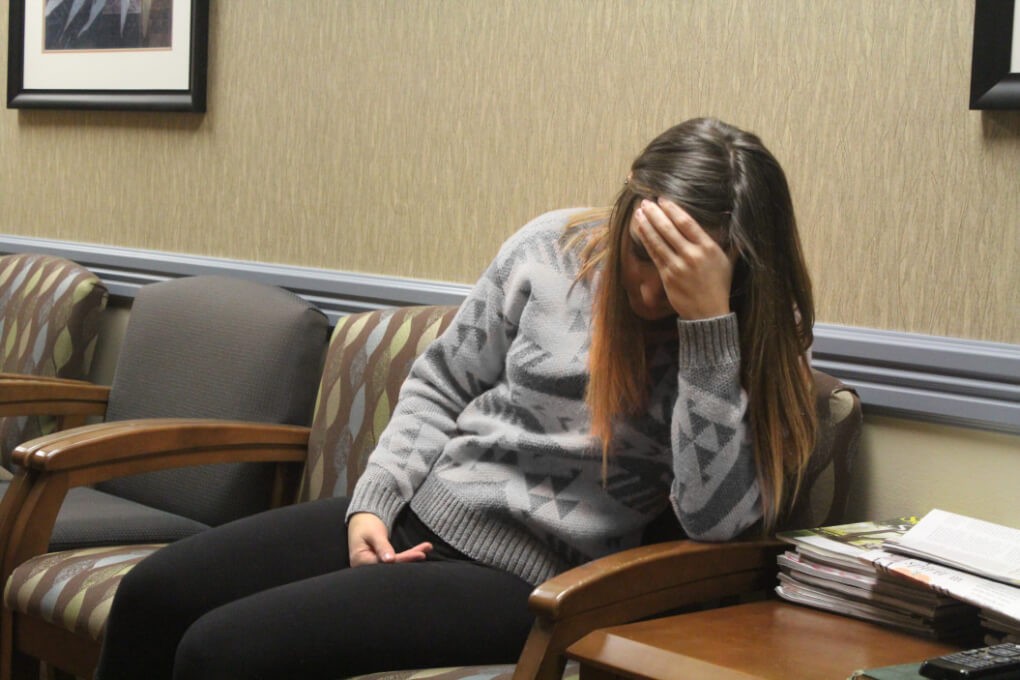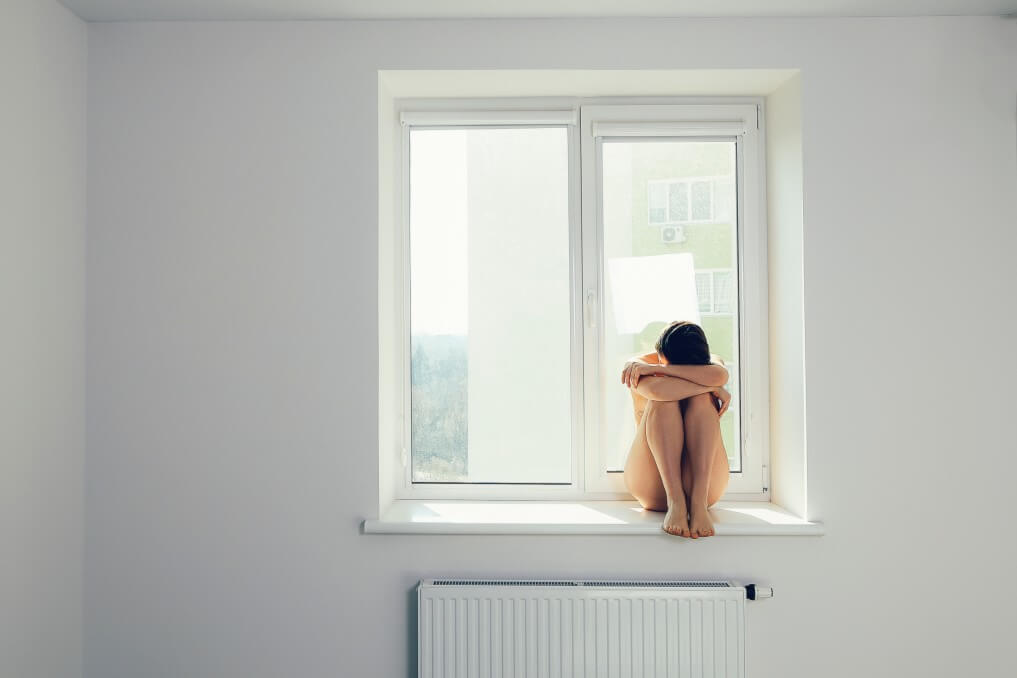Am I Depressed?
Depression is one of the most frequent psychological problems, affecting around 340 million people worldwide. And on the verge of becoming one of the new global pandemics.
As general characteristics, the presence of sadness most of the day stands out. Feelings of emptiness or hopelessness, loss of interest in things that previously generated satisfaction. Less interest in interpersonal relationships, extreme tiredness, and problems regulating hunger or sleep. (For example, stop being hungry or have episodes of excessive ingestion, especially of products with high-calorie content).

young woman holding her head looking worried, sick, or tired sitting in a waiting room of a clinic depression help services treatment center
It is essential to attend to changes in sleep. Fifty percent of sleep phases begin with this type of disturbance (such as sleeping excessively, problems falling asleep, etc.). Also, attention and concentration problems, less attention to detail, irritability, fatigue, or even problems may appear—ideas of death. Depressed mood, often with content related to death, can occur in some cases.

treatment for depression san Diego family life at home young caucasian mother and babysitting in bedroom infant lying in a cocoon
It is normal to experience sadness or unpleasant emotions in certain situations.
The problem resides when these emotions are established, making it difficult to return to a previous state of mind; generating interference in the personal, social and / or work area.
Depression can often occur along with symptoms of anxiety, which may also be present in some relatives and depression.
Some physical health problems can occur along with depression. Along these lines, muscle aches, headaches, migraines, or gastrointestinal discomfort may occur without apparent cause. In turn, depression is common in chronic diseases such as Alzheimer’s, cancer, lupus, Parkinson’s, hypothyroidism, endometriosis, diabetes, or epilepsy, among others.
If you have suspicions that you are going through a depressive process, the most appropriate decision is to turn to mental health professionals and treatment. When resilience isn’t enough, a clinical perspective might be a great way to have insight on symptoms and the right approach for treatment.
- Refresh Recovery substance abuse and mental health treatment provide the latest depression therapies in San Diego.


